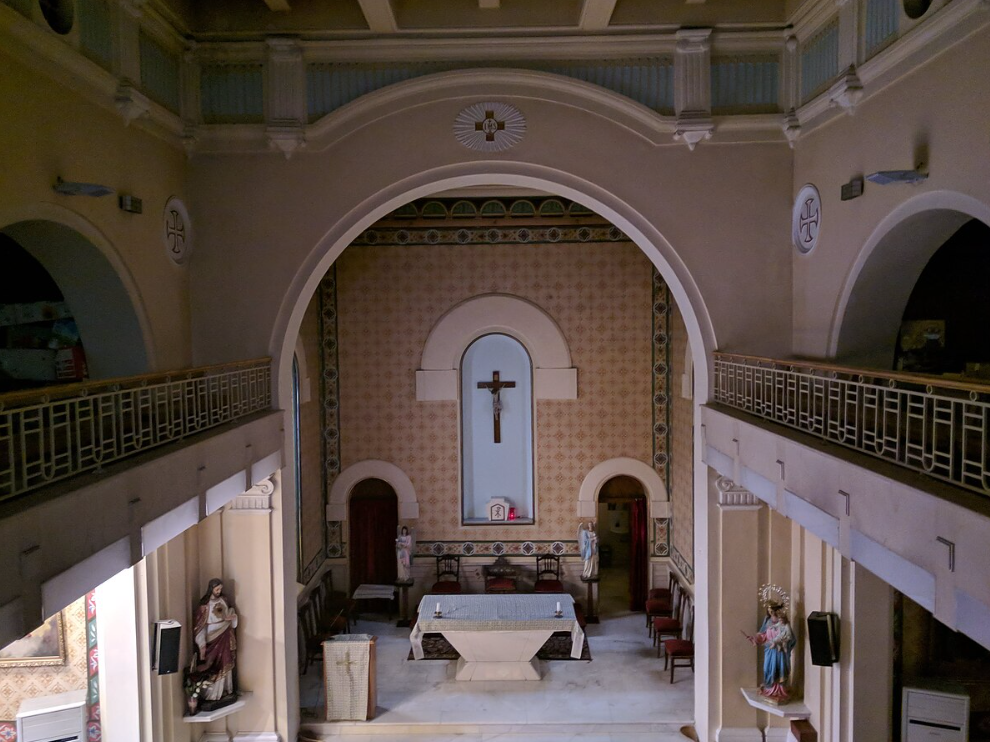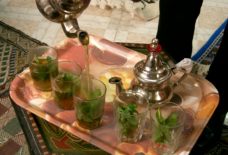Interfaith Unity Shines through Dark Times in Damascus

By: Ramsey Zeidan / Arab America Contributing Writer
In the wake of a devastating attack on Mar Elias Church in Damascus, Syrian Christians are confused, disheartened, and scared. The violent bombing that left over 25 people dead last week was the first of its kind in decades. Consequently, the attack is rattling the sense of security in Syria’s capital and stirring fear. As the world bears witness to the martyrs of Damascus, Syria’s interfaith communities are coming together to mourn the victims and take a stand against this brand of violence.
“Why Us?”
Mar Elias is located in Dwel’a, a neighborhood known for its religious diversity and tranquility. Dwel’a was excluded from the violence that shook Damascus during Syria’s Civil War, so residents were stunned following the tragedy. The sudden and hateful nature of the bombing left Christian residents wondering if they can remain comfortable in their own communities. Religious minorities in Damascus are asking if the Syrian government can keep them safe, a concern amplified by uncertainty about Syria’s recent regime change. In the words of a local Christian resident, “I wonder why they target us. We had no interest in any of the events that happened in our country. We have no interests besides Syria living in peace.”
Sadly, the answer to why these peaceful communities are targeted isn’t complex: they are most vulnerable. On a national scale, hateful attacks on minority communities are easier to execute. Syrian Christians, no matter their role in politics (or lack thereof), are by definition a religious minority. Beyond the geopolitical implications, it’s important to understand the purpose such an attack serves to its perpetrators. Isolation is a common fear tactic employed by hate groups and terrorists to further marginalize vulnerable peoples. Cutting off places of worship drives a community to the fringes, compounding with fear to worsen feelings of isolation. When a community loses confidence in its public spaces, it becomes easier to sow division. The attack on Mar Elias was both strategic and symbolic.
Yet, through fear mongering and dozens of deaths, the story isn’t the people who committed this atrocity. The real story is the resilience of Syria, and the incredible display of interfaith unity in the face of terror.

Syria is Still Standing
An outpouring of support came from not only the broader Christian community, but fellow Syrian nationals. Last week mourners throughout Syria, regardless of religion, marched for the victims of Mar Elias, demonstrating remarkable solidarity. Ministers, foreign officials, and even the United Nations have renewed calls to end sectarian violence in Syria. The funeral service for the victims was led by Greek Orthodox Patriarch John Yazigi, Melkite Catholic Patriarch Youssef Absi, and Syrian Catholic Patriarch Ignatius Youssef III Younan, alongside numerous bishops, priests, and a large crowd from various denominations.
Perhaps the most powerful statement in response to the tragedy come from Sheikh Moaz al-Khatib: “I am convinced that, despite everything, we are still standing, that we remain, despite it all, in a state of moral and human grace and that no matter what they do, we shall remain this magnificent, civilized people who defy death, iron and fire, who care for one another…” Religious leaders like Al-Khatib exemplify the unity and bravery that Syria displayed in the wake of Mar Elias. Despite the perfect storm of fear tactics, the Mar Elias tragedy has stopped nobody. The outcry from Sheikhs and Syria’s Muslim community shows that interfaith unity is not only possible but currently thriving.
A Lesson to Learn
Syria stands strong in the face of terror, but religious communities around the globe must understand the model of tolerance Damascus employs. The minority status and vulnerability that makes Syria’s Christian community a target is negated through displays of solidarity. Genuine efforts by Syrian Muslims and any other non-Christian group to support the martyrs of Mar Elias makes all the difference. It is a necessity to argue that, as Sheikh Moaz al-Khatib said, Syrians must unite under the banner of nationality and common good, not religious boundaries.
The entire world has something to learn from Syria’s interfaith unity. A unity that is built on genuine care for others, regardless of religious labels. A unity founded on an ethical obligation to help our neighbors, transcending politics. The threat of terrorism does not distinguish between religion or sect, so neither should we in our support for other people.
Want more articles like this? Sign up for our e-newsletter!
Check out our blog here!








